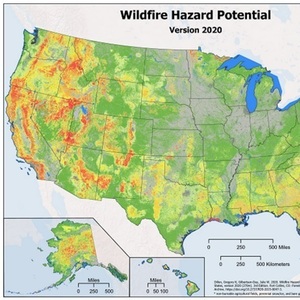Feinstein urges EPA to update feedstock eligibility under RFS

December 13, 2021
BY Erin Krueger
Sen. Dianne Feinstein, D-Calif., on Dec. 7 sent a letter to EPA Administrator Michael Regan urging the agency to revise the Renewable Fuel Standard to allow biomass harvested from federal land as part of wildfire mitigation efforts to be an eligible feedstock under the program.
“As you may know, Section 201 of the Energy Independence and Security Act of 2007 (EISA) allows biomass from federal land to be sourced ‘from the immediate vicinity of buildings and other areas regularly occupied by people, or of public infrastructure, at risk from wildfire,’” she wrote. “In 2010, the EPA published implementation guidelines for that category in its final rule, ‘Regulation of Fuels and Fuel Additives: Changes to the Renewable Fuel Standard Program.’ Unfortunately, the implementation of this law did not account for areas with wildfire hazard potential and excluded most of the Western United States where catastrophic wildfires are increasing common.”
A map attached to the letter illustrates the significant risk of wildfires in the western portion of the U.S.
“As this year’s fuel quantities become finalized, I urge the EPA, in conjunction with federal land management agencies, to expand the criteria for which qualifying biomass could be sourced and, thus, eligible for credits under the cellulosic category in the RFS,” Feinstein wrote. “This determination should be made in accordance with the latest science, and to recognize the exacerbating threat that climate change poses to catastrophic wildfire in the American West.”
Advertisement
A full copy of the letter can be downloaded from Feinstein’s website.
Advertisement
Related Stories
The U.S. EPA on July 8 hosted virtual public hearing to gather input on the agency’s recently released proposed rule to set 2026 and 2027 RFS RVOs. Members of the biofuel industry were among those to offer testimony during the event.
The USDA’s Risk Management Agency is implementing multiple changes to the Camelina pilot insurance program for the 2026 and succeeding crop years. The changes will expand coverage options and provide greater flexibility for producers.
EcoCeres Inc. has signed a multi-year agreement to supply British Airways with sustainable aviation fuel (SAF). The fuel will be produced from 100% waste-based biomass feedstock, such as used cooking oil (UCO).
President Trump on July 4 signed the “One Big Beautiful Bill Act.” The legislation extends and updates the 45Z credit and revives a tax credit benefiting small biodiesel producers but repeals several other bioenergy-related tax incentives.
CARB on June 27 announced amendments to the state’s LCFS regulations will take effect beginning on July 1. The amended regulations were approved by the agency in November 2024, but implementation was delayed due to regulatory clarity issues.
Upcoming Events










